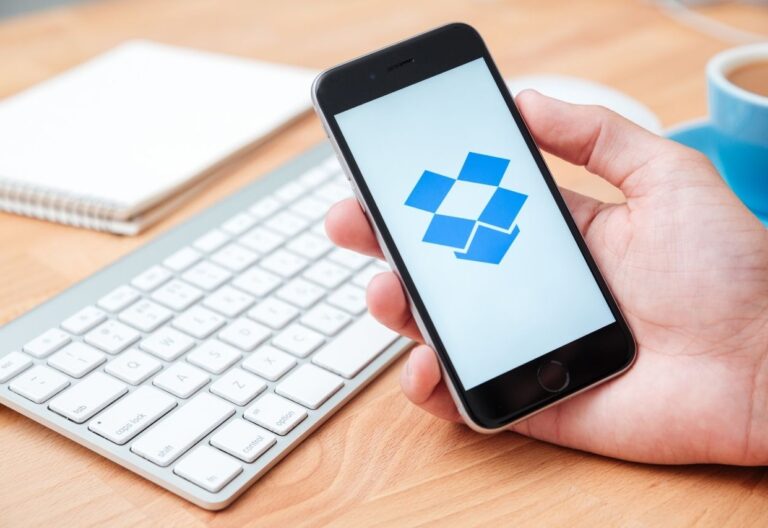What is snooping? Simply put, it is any act that involves looking into private or confidential data without consent. Snooping in a workplace or office setting is often called “employee snooping.”
The act refers to the unauthorized access or monitoring of another employee’s personal or work-related information. It’s a pressing concern with significant emotional implications on workplace relationships, eroding the foundation of trust within an organization.

What Is Office or Employee Snooping?
Employee snooping occurs when an employee deliberately accesses or monitors a colleague’s personal or professional information without their knowledge or consent. The employees who engage in such acts are called “snoopers,” whose unethical actions can cause significant harm to employee morale and even compromise data protection protocols.
This unauthorized act can happen through various means, including inappropriate access to digital office files, monitoring phone calls, viewing confidential medical records of a healthcare practice, and reading private emails.
Types of employee snooping
Office snooping can take different forms, depending on the methods and intent behind the action. It can be either casual snooping or targeted snooping. Casual snooping often stems from curiosity or idle browsing, while targeted snooping involves intentional efforts to access specific information, such as sensitive customer data or confidential health records.
In the context of a healthcare practice, snooping can lead to severe violations of patient confidentiality and potential data breaches, putting the organization at risk both legally and reputationally. Privacy awareness training is crucial to ensure that employees understand the importance of data security and the consequences of snooping.
Besides casual snooping, employee snooping may also fall under the following categories: when employees invade the privacy of their colleagues and when employers monitor their employees. The Electronic Communications Privacy Act (ECPA) authorizes and regulates employer surveillance of employee communications and activities under specific circumstances. However, office snooping on colleagues is illegal, constituting an unauthorized breach of privacy that intrudes upon the rights of an individual.
Office snooping warning signs
Supervisors and colleagues should be vigilant in identifying suspicious behavior that may indicate potential snooping. Recognizing the warning signs is crucial for early detection and prevention.
Some red flags may include the following:
- Excessive curiosity about colleagues’ private information
- Unauthorized access to systems, files, or restricted areas
- Suspicious behavior during breaks or near sensitive areas
- Possessing detailed knowledge of confidential information beyond their role
- Sudden changes in behavior, increased secrecy, or defensiveness
- Disregard for privacy policies and procedures
- Unauthorized use of others’ login credentials
- Unexplained data breaches, unusual downloads, or unauthorized copying of sensitive information
Being alert to these signs can help employers detect and address employee snooping, safeguard privacy, and maintain a trustworthy workplace environment.
Monitoring for potential privacy breaches
Employers should establish systems and protocols to monitor and detect potential privacy breaches. This can involve implementing secure access controls, logging and analyzing data access patterns, and conducting regular audits to identify any unauthorized access attempts.
The Impact of Snooping on Workplace Privacy
Office snooping can have severe consequences on workplace privacy. When employees discover that their personal or professional information has been accessed without their consent, they may experience feelings of violation, mistrust, and invasion of privacy. This emotional toll can lead to strained relationships, reduced collaboration, decreased job satisfaction, and high turnover rates.
Balancing employee privacy with company interests
While respecting employee privacy is crucial, companies also have legitimate interests in monitoring specific aspects of their employees’ activities, especially when it involves matters concerning security and compliance.
Thus, finding the right balance between respecting employee privacy and looking out for the company’s best interests is crucial. It would help to establish clear policies and guidelines to outline what information can be accessed and under what circumstances.
Legal and Ethical Implications of Employee Snooping
Numerous privacy laws and regulations exist to protect individuals’ rights in the workplace. These laws vary across jurisdictions, but generally, they require employers to obtain explicit consent before accessing employees’ personal information and set guidelines for data protection. Organizations must understand and comply with these laws to avoid engaging in unlawful and unethical snooping practices.
Some notable privacy laws and regulations that oversee employee snooping include:
- Electronic Communications Privacy Act (ECPA): Prohibits unauthorized interception of electronic communications in the workplace.
- Health Insurance Portability and Accountability Act (HIPAA): Sets privacy and security standards for protected health information in the healthcare industry.
- California Consumer Privacy Act (CCPA): Regulates the collection and usage of personal information for California residents, imposing obligations on businesses operating in the said state.
Is Employee Snooping in Healthcare a HIPAA Violation?
HIPAA imposes strict protected health information (PHI) guidelines, and compliance is necessary for all covered entities. Employee snooping significantly jeopardizes health information privacy and could warrant several HIPAA violations, such as:
- Violation of HIPAA Privacy Rule: Employees seeking access to protected health information, such as the medical records of other employees, celebrities, friends, and families, without explicit consent breach PHI confidentiality, violating the HIPAA rules of privacy.
- Violation of HIPAA Security Rule: Employees obtaining unauthorized access to sensitive health data in EHRs or other information systems within their organization violates the security guidelines set by HIPAA. After all, safeguarding PHI is part of a healthcare employee’s core responsibilities. Office snooping in hospitals and clinics voids the purpose of implementing best practices for safe data handling.

Tips to Address and Prevent Employee Snooping
Preventing unauthorized monitoring requires a multi-faceted approach that involves policy development, employee education, and technological measures. Here are some effective strategies:
Establishing clear company policies
Developing comprehensive policies and procedures that clearly define acceptable and unacceptable behavior related to data access and privacy is crucial. Employees should be made aware of these policies and instructed on their implications.
Implementing access control measures
Employers should implement access control measures such as strong passwords, two-factor authentication, Single Sign-on (SSO), and role-based access control to restrict unauthorized access to sensitive information.
Providing employee training and awareness programs
Educating employees about the importance of privacy, the potential consequences of snooping, and the company’s policies can help foster a culture of respect and responsibility. Organizations should also look into conducting regular training sessions and privacy awareness programs.

Responding to employee snooping incidents
In the unfortunate event of an employee snooping incident, a prompt and appropriate response is crucial to address the issue and restore trust within the organization.
Conducting a thorough investigation
Organizations should conduct a thorough investigation to gather evidence, determine the extent of the breach, and identify the individuals involved. For the investigation to be carried out fairly and objectively, you need to include the following steps:
- Preserve evidence: Secure electronic records and physical documents relevant to the incident.
- Determine the breach extent: Assess the scope and impact of the privacy breach.
- Interview involved parties: Gather statements from the affected employee, alleged snooper, and witnesses.
- Review system logs and footage: Analyze records and surveillance footage to identify unauthorized activities.
- Engage IT experts: Seek assistance from IT professionals to assess system vulnerabilities.
- Respect legal and privacy considerations: Adhere to legal obligations and protect employee rights.
- Document findings: Maintain a detailed record of the investigation process and evidence.
- Report to management: Provide a comprehensive report with findings and recommended actions.
Taking appropriate disciplinary action
Once the investigation is complete, appropriate disciplinary measures should be taken. These actions can range from warnings or suspension to termination, based on the severity of the snooping incident. Refer to established policies and consult with HR and legal experts to ensure compliance with employment laws.
Document all actions taken throughout the disciplinary process and communicate the outcomes to relevant parties, highlighting the organization’s commitment to privacy and trust. By taking decisive disciplinary action, organizations emphasize the importance of ethical behavior, reinforce privacy protection, and promote a secure and trustworthy workplace.
Mitigating damage and strengthening security
After an incident, it is essential to address any potential damage caused by the snooping and take steps to prevent future incidents. This can include enhancing security measures, providing comprehensive awareness training, and re-establishing a culture of trust and privacy within the organization. By acting swiftly, organizations can minimize risks, recover effectively, and ensure a secure environment for employees and sensitive information.







